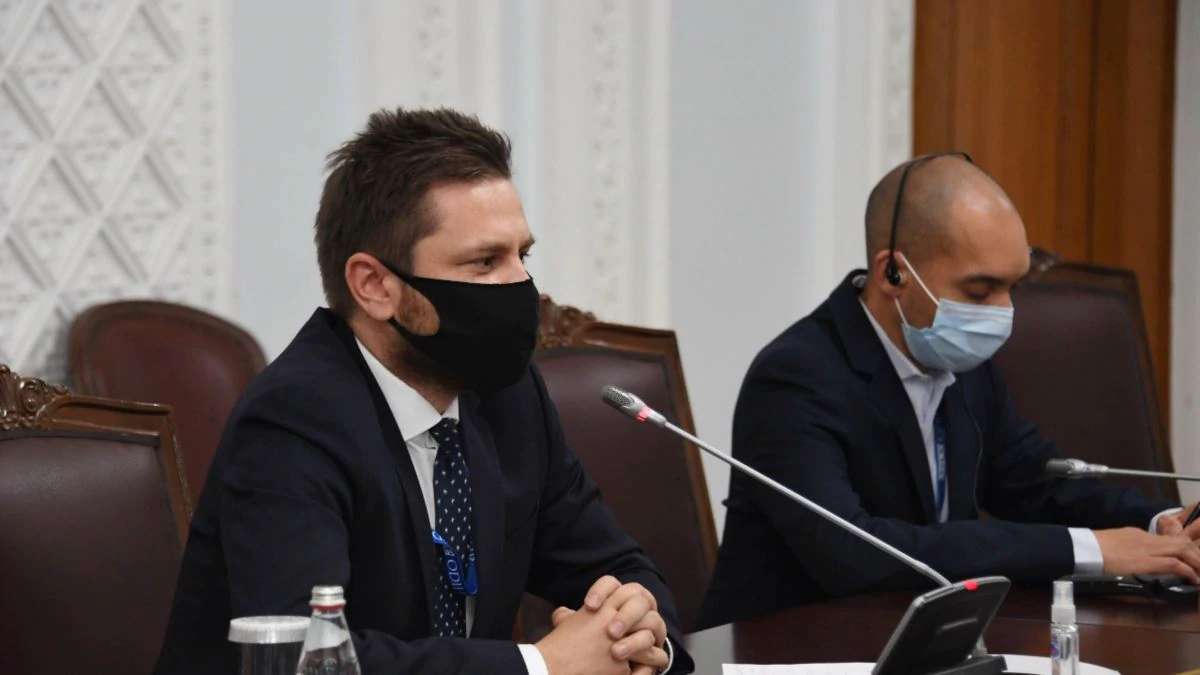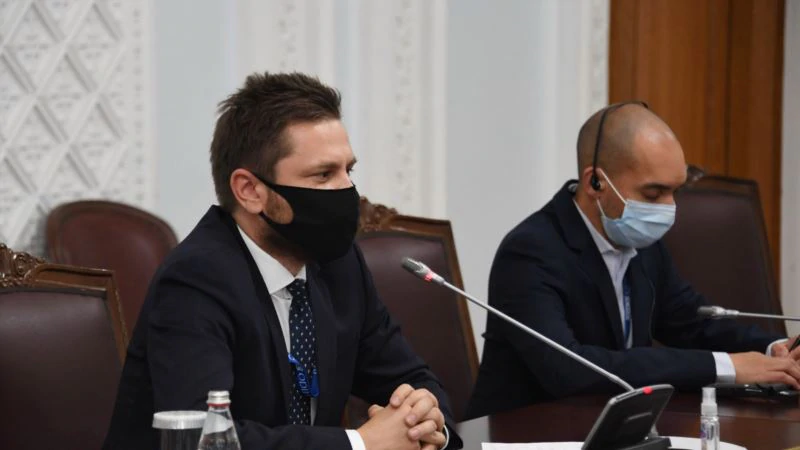
The head of an election-monitoring team to Kazakhstan from the Organization for Security and Cooperation in Europe (OSCE) has detailed a litany of failings and seemingly “concerted” moves by Kazakh authorities to hinder transparency in recent national elections.
In its initial conclusions, the team described the January 10 Kazakh vote as “not competitive” and devoid of “genuine political alternatives to choose from.”
But Jaroslaw Domanski, head of the limited observation mission for the OSCE’s Office for Democratic Institutions and Human Rights (ODIHR), used tougher language in an interview with RFE/RL two days after the balloting.
He cited “bad intention, basically, bad practice, and a lack of goodwill” on Nur-Sultan’s part in conducting the elections.
“While voting itself was generally organized efficiently, and also in line with COVID-19 precautions, many aspects of the process on election day lacked full transparency,” Domanski said.
After the exclusion of many opposition groups that applied to get on the ballot and a boycott by another, the preliminary vote count left the same three parties in parliament as after the previous elections, led by the ruling Nur Otan with over 71 percent.
“The problems actually started after the closing of the polling stations; namely, the counting and tabulation were not assessed positively by our observers,” Domanski said.
It was the Central Asian state of around 18 million people’s first parliamentary elections since the resignation in early 2019 of longtime President Nursultan Nazarbaev, who still holds considerable power despite handpicking a successor, Qasym-Zhomart Toqaev.
The lack of competition dashed the hopes of the country’s Western partners, who had hoped for deep political reforms. Nonetheless, some say continuity will bring the stability needed to attract foreign investment in the resource-rich country — primarily into the oil, gas, and mining sectors.
Domanski said that Kazakh authorities “unfortunately” failed to address “most of the recommendations” from ODIHR observers of the 2016 and 2019 votes.
International election observers have characterized past elections in Kazakhstan as being neither free nor fair, citing electoral fraud, repression of opposition candidates, and restrictions on a free press.
The registered All-National Social Democratic Party (OSDP) boycotted the elections, saying there was no chance for opposition parties like itself.
The ODIHR mission was “limited” this time, but its observers visited more than 90 polling stations in 13 of Kazakhstan’s 17 regions.
There were worrying official moves ahead of this latest vote, like recent legislative changes for NGOs and the last-minute requirement of coronavirus tests, Domanski said, in addition to Kazakhstan’s failure to fulfill “many international commitments for holding democratic elections” to which Nur-Sultan had pledged itself.
“We are talking about the very serious recommendations related to fundamental freedoms, impartiality of election administration, eligibility to stand for elections and to vote for the legislation, media,…and others,” he said.
“Only some of these recommendations were addressed, most of them, unfortunately, only partially.”
Domanski said ODIHR’s observers “confirmed” independent citizens’ complaints of unnecessary obstacles to observing the vote.
ODIHR saw “concerted efforts of the authorities to prevent the effective observation of these elections” that began long before election day.
Domanski also cited tax investigations on NGOs initiated in November, a Central Election Commission resolution granting itself “wide discretion in dismissing the citizen observers,” and the late imposition of COVID-19 testing requirements that were used to exclude journalists and citizen observers.
He blamed the last-minute COVID-19 testing stipulation, in particular, for preventing nearly 90 percent of 2,000 planned observers for two NGOs — MISK and Erkindik Qanaty (Wings of Liberty) — from deploying effectively.
“These concerted measures adopted by the authorities prevented the independent observers from effectively observing the election,” Domanski said.
He said that ODIHR was still looking into whether, in addition to moves that flouted international standards of “good practice,” Kazakh authorities might have contravened their own national legislation.
Kazakh officials have defended their moves as an effort to clarify the situation around NGO operations, he said. “[But] it looks to us [like] bad intention, basically, bad practice and a lack of goodwill,” Domanski said.
He cited Internet service interruptions and website shutdowns throughout election day and criminal and legislative dampers on freedom of expression.
“It stifles genuine political debate. It results in self-censorship of the media, and it makes this entire political space stripped of a genuine debate, political debate, which is a normal and necessary element of any democratic reality and community,” Domanski said.
He said that ODIHR “stand[s] ready to help state authorities to improve to improve, to implement these recommendations,” including through expert legal opinions and “comprehensive dialogue” with Kazakh election officials.
“But the goodwill is needed from Nur-Sultan, from Kazakhstan, in order to start this, to engage in this dialogue in a genuine and serious way.”
He acknowledged that this generally rests “mostly [on] the political will of the national authorities.”
The elections decided 98 of 107 seats in the Mazhilis. Nine other seats will be separately elected by the Assembly of People of Kazakhstan — a political body chaired by Nazarbaev designed to represent ethnic groups in the country.
PrintRadio Free | Radio Free (2021-01-13T14:56:05+00:00) OSCE Monitor Blasts 'Bad Intention,' 'Bad Practice' In Kazakh Election. Retrieved from https://www.radiofree.org/2021/01/13/osce-monitor-blasts-bad-intention-bad-practice-in-kazakh-election/
Please log in to upload a file.
There are no updates yet.
Click the Upload button above to add an update.
